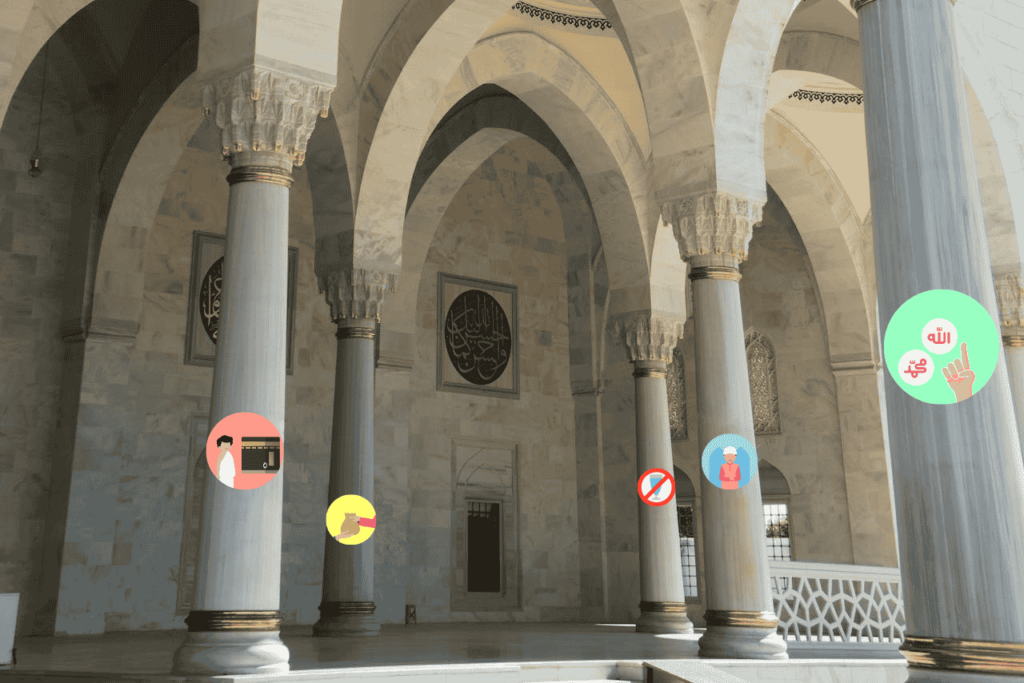A Comprehensive Guide to the Islamic Teachings
Islam, a faith embraced by over a billion people worldwide, is built upon profound teachings that shape the spiritual, social, and ethical lives of Muslims. The core teachings of Islam serve as the foundation for a life of faith, devotion, and communal harmony. In this blog post, we will explore the depth and wisdom found within Islamic teachings. These teachings offer practical solutions for living a balanced and meaningful life. From the core beliefs to the daily practices that define a Muslim’s journey, Islamic teachings encompass various topics.
Whether you’re looking to strengthen your faith or enhance your knowledge, now is the perfect time to start. Join our online courses and learn at your own pace with guidance from expert scholars and discover how Islamic teachings can transform your life.
Beliefs that Form the Essence of Islam
At the heart of Islamic teachings is the belief in one God (Allah), who is the creator and sustainer of the universe. This monotheism is the cornerstone of Islam, emphasizing that Allah is unique, all-powerful, and merciful. Muslims also believe in the prophethood of Muhammad (peace be upon him), who is considered the final messenger of Allah, and in the divine guidance provided through the Quran.
Additionally, Islamic teachings stress belief in the Day of Judgment, when all individuals will be held accountable for their actions in this life. Belief in Angels, Divine Books, messengers, and predestination. These beliefs shape a Muslim’s perspective on life, encouraging moral conduct, charity, and compassion toward others.
The Pillars of Islam
The teachings of Islam are exemplified in the Five Pillars, which serve as the framework for a Muslim’s faith and actions. These pillars represent fundamental acts of worship and devotion that every Muslim is required to observe:
- Shahada (Faith) – The declaration of faith, stating that there is no god but Allah, and Muhammad is His messenger.
- Salah (Prayer) – Muslims are required to pray five times a day, a practice that reinforces their connection with Allah and instills discipline.
- Zakat (Charity) – Giving a portion of one’s wealth to the poor is a key part of Islamic teachings, fostering social equity and empathy.
- Sawm (Fasting during Ramadan) – Muslims fast from dawn until sunset during the holy month of Ramadan, which helps develop self-control and empathy for those in need.
- Hajj (Pilgrimage) – Every Muslim who is physically and financially able must perform the pilgrimage to Mecca at least once in their lifetime.

A Day in the Life of a Muslim
Islamic teaching influences every aspect of a Muslim’s daily life. From the moment a Muslim awakens, they are reminded of their duties to Allah through daily prayers. Meals begin with the invocation of Allah’s name, and business dealings are conducted with honesty, as emphasized by the teachings of Islam.
Islamic principles encourage Muslims to engage in regular charity, treat others with kindness, and maintain strong family ties. Observing these daily acts strengthens their bond with the faith and enhances their sense of responsibility toward others.
The Diversity of Islam
One of the most remarkable aspects of Islamic teachings is how they have transcended geographical, cultural, and linguistic boundaries. Islam is practiced by people of diverse ethnicities and traditions, which enriches the global Muslim community. From the Middle East to Southeast Asia, Africa to Europe, Muslims share common religious principles while celebrating cultural diversity.
This diversity reflects the universal appeal of teaching about Islam, which encourages tolerance, respect for others, and the preservation of cultural heritage.
How Did Observing Islamic Teachings Create Unity Among Muslims?
The unity of the Muslim Ummah (community) is a testament to the strength of Islamic teachings. The collective observance of rituals, such as prayer, fasting, and the Hajj pilgrimage, binds Muslims together in faith and practice, regardless of nationality or background. The Quran’s guidance on justice, equality, and mutual respect plays a crucial role in maintaining this unity.

By adhering to principles of fairness and compassion, Muslims create a harmonious society where everyone feels a sense of belonging.
How Did the Teachings Help Islam Spread?
The spread of Islam can be attributed to the universal appeal of its core teachings. Early Muslim traders and scholars spread Islam through peaceful means, emphasizing values such as honesty, charity, and respect for others. The social justice principles found in the teachings of Islam resonated with people from various regions, contributing to the religion’s rapid growth.
The message of equality and fraternity attracted many to the faith, especially in societies plagued by social hierarchies and inequality. The emphasis on education, trade, and dialogue further accelerated the spread of Islam across continents.
Sources for Learning Islam
Those teaching Islam are the best people. There are several primary sources to provide essential knowledge:
- The Quran and hadith – The Quran and Hadith are the primary sources of teaching Islam. These offer insights into how to live by Islam.
- Islamic Scholars – Qualified scholars provide valuable interpretations of religious texts, making complex concepts accessible to learners.
- Online Resources and Courses – The digital age has made it easier than ever to access reliable information on teaching about Islam, with a variety of online platforms offering courses and articles.
These sources ensure that Muslims and those interested in Islam can access accurate, authentic teachings to deepen their knowledge.
Respect for Other Religions
One of the core principles of Islamic teachings is respect for other religions. Islam encourages Muslims to treat people of different faiths with kindness and fairness, as stated in the Quran. The Prophet Muhammad (peace be upon him) demonstrated respect for people of all faiths and emphasized peaceful coexistence.
This respect is crucial in fostering interfaith dialogue and understanding. The teachings of Islam uphold that every individual has the right to practice their faith without fear of discrimination, promoting a world of harmony and tolerance.
Conclusion
Islamic teachings are not just religious principles; they are a way of life that guides Muslims toward spiritual growth, ethical living, and unity with their fellow believers. From the Five Pillars to the respect for diversity and other faiths, teaching Islam creates a harmonious world where individuals can thrive spiritually and morally. By observing these teachings, Muslims not only strengthen their connection with Allah but also contribute to a peaceful and just society.
Whether you’re looking to strengthen your faith, enhance your knowledge, or live in harmony with Islamic values, now is the perfect time to start.
Join our online courses and learn at your own pace with guidance from expert scholars. Don’t wait—enroll today and discover how Islamic teachings can transform your life.









3 Comments
Comments are closed.